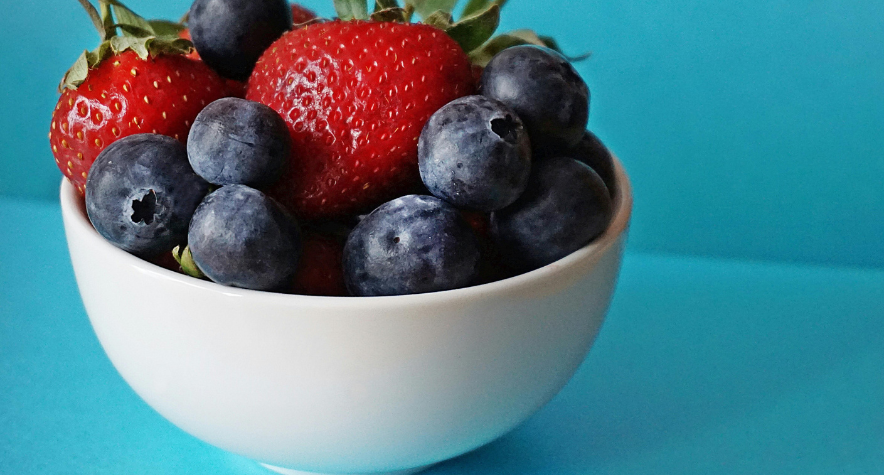5 Powerful Foods To Improve Cognitive Performance
Nutrition plays a crucial role in maintaining cognitive health. A healthy diet not only supports overall well-being but also significantly impacts brain function and memory. Research shows that individuals with high-quality diets tend to experience better cognitive outcomes as they age.
“Dietary habits established earlier in life can influence cognitive health later on.”
Incorporating foods rich in essential nutrients can enhance memory and cognitive function, making it vital to understand the connection between what we eat and how our brains perform.
Blueberries: Nature’s Brain Booster

https://4de50cl1sb0p9o1qqegfmap1xu.hop.clickbank.net
Blueberries are not only a delicious fruit but also a powerhouse of nutrition. These tiny berries are rich in antioxidants and phytonutrients, which have been shown to support brain health and cognitive function. A study indicated that daily consumption of wild blueberry juice for 12 weeks led to significant improvements in memory tasks among older adults.
Key findings from the research include:
Paired associate learning improved significantly (p = 0.009).
Word list recall also showed improvement (p = 0.04).
Trends suggested reduced depressive symptoms and lower glucose levels.
These benefits are attributed to the polyphenolic compounds, especially anthocyanins, found in blueberries. These compounds enhance neuronal signaling and improve glucose metabolism, which may help mitigate neurodegeneration. Incorporating blueberries into your diet could be a simple yet effective way to boost your cognitive performance.
Fatty Fish: Omega-3 Powerhouse
Omega-3 fatty acids are vital for maintaining optimal brain health and function. These essential fats, particularly docosahexaenoic acid (DHA) and eicosapentaenoic acid (EPA), play a crucial role in preserving brain structure and enhancing cognitive performance. Recent research indicates that having omega-3s in red blood cells is associated with better brain health and cognitive function among individuals in their 40s and 50s (source).

Fatty fish, such as salmon, mackerel, and sardines, are excellent sources of omega-3s. Including these fish in your diet can provide significant cognitive benefits. A systematic review found that omega-3 supplementation led to improvements in learning and memory (source), showcasing the importance of these nutrients for brain health.
| Fish Type | Omega-3 Content (per 100g) |
|---|---|
| Salmon | 2.2g |
| Mackerel | 4.6g |
| Sardines | 2.2g |
By prioritizing the consumption of omega-3-rich fatty fish, you can take an essential step towards enhancing your cognitive performance and overall brain health.
Nuts: Nutrient-Dense Brain Food
https://43468lk4-350lw5w31xm6i242w.hop.clickbank.net
Nuts are not just a tasty snack; they are also a powerhouse of nutrition for brain health. Varieties like walnuts, almonds, hazelnuts, and pistachios offer a unique blend of nutrients that can significantly enhance cognitive function. Their rich composition makes them a great addition to any diet aimed at improving mental performance.
Key nutrients found in nuts include:
Healthy fats (unsaturated fatty acids)
Antioxidants
Vitamin E
Polyphenols
Research suggests that a daily intake of nuts can improve memory and brain function. In one study, participants aged around 65 who consumed 60 grams of mixed nuts daily showed a remarkable 16% improvement in verbal memory tasks compared to those who did not. This enhancement is likely due to the healthy fats and vitamin E found in nuts, which protect brain cells from oxidative stress and promote better blood flow in the brain.
Incorporating nuts into your diet can be a delicious way to support mental alertness and cognitive health.
Broccoli: A Cruciferous Champion
Broccoli is a nutritional powerhouse, packed with antioxidants and vitamin K. This vibrant green vegetable plays a crucial role in supporting brain health and cognitive function. Its high antioxidant content helps combat oxidative stress, which is particularly harmful to brain cells.
One of the key benefits of broccoli is its ability to reduce oxidative stress, which is linked to cognitive decline. By protecting brain cells from damage, broccoli may help maintain sharp mental acuity. A nutrition expert states, “Incorporating broccoli into your diet can provide essential nutrients that support cognitive health and may even slow down the aging process of the brain.”
Moreover, the vitamin K found in broccoli is vital for synthesizing sphingolipids, a type of fat that is abundant in brain cells. This contributes to better cognitive performance and overall brain function. Adding broccoli to your meals is a simple yet effective way to enhance your diet and support your cognitive health.
Pumpkin Seeds: Tiny But Mighty
Pumpkin seeds may be small, but they pack a powerful nutritional punch. They are rich in essential nutrients, including magnesium, zinc, and copper, all of which play vital roles in maintaining cognitive function and brain health. Magnesium, for instance, helps regulate neurotransmitters, promoting relaxation and reducing anxiety. This can indirectly support better memory function.
Zinc is crucial for neurotransmitter function and cognitive performance. A deficiency in zinc has been linked to mood disorders, emphasizing its importance for mental well-being. Additionally, pumpkin seeds provide healthy fats, particularly omega-3 fatty acids, which are known to help protect brain cells from oxidative damage.
Research has shown that including pumpkin seeds in your diet can enhance mood and cognitive performance. For example, a study found that a daily intake of just 1 to 2 tablespoons of these seeds can significantly improve mental clarity and emotional balance. Their versatility makes them easy to incorporate into snacks or salads, ensuring a tasty way to boost your brain health.
https://blissfullway.com/wellness-solutions-for-a-diverse-workforce/
https://www.hhs.gov/
FAQs on Cognitive Nutrition
Understanding the relationship between diet and brain health can be confusing. Here are some common questions and evidence-based answers to clarify misconceptions.
1. Can certain foods really improve memory? Yes, foods rich in antioxidants, healthy fats, and essential nutrients, like those in the MIND diet, have been linked to improved cognitive function and memory retention.
2. Is it true that all fats are bad for brain health? No, not all fats are detrimental. Healthy fats, particularly omega-3 fatty acids found in fish, are essential for brain structure and function, contributing to cognitive health.
3. How does a poor diet affect cognitive decline? A diet high in processed foods and low in nutrients can increase the risk of cognitive decline. Studies show that adhering to a nutritious diet can reduce this risk significantly.
4. Do supplements replace the need for a healthy diet? No, while supplements can help, they do not replace the benefits of whole foods. A balanced diet provides a range of nutrients that work synergistically for optimal brain health.
5. Are there specific diets that promote brain health? Yes, diets like the MIND diet, which combines elements of the Mediterranean and DASH diets, emphasize foods that support cognitive health.
https://41f0amx8q7dtgv8nym9a1b6v4e.hop.clickbank.net
Conclusion
Incorporating powerful foods like blueberries, fatty fish, nuts, broccoli, and pumpkin seeds into your diet can significantly enhance cognitive health. These foods are rich in essential nutrients that support brain function and may lower the risk of cognitive decline.
Make informed dietary choices today. Your brain will thank you for it in the long run. Start small, and watch your cognitive performance soar!








